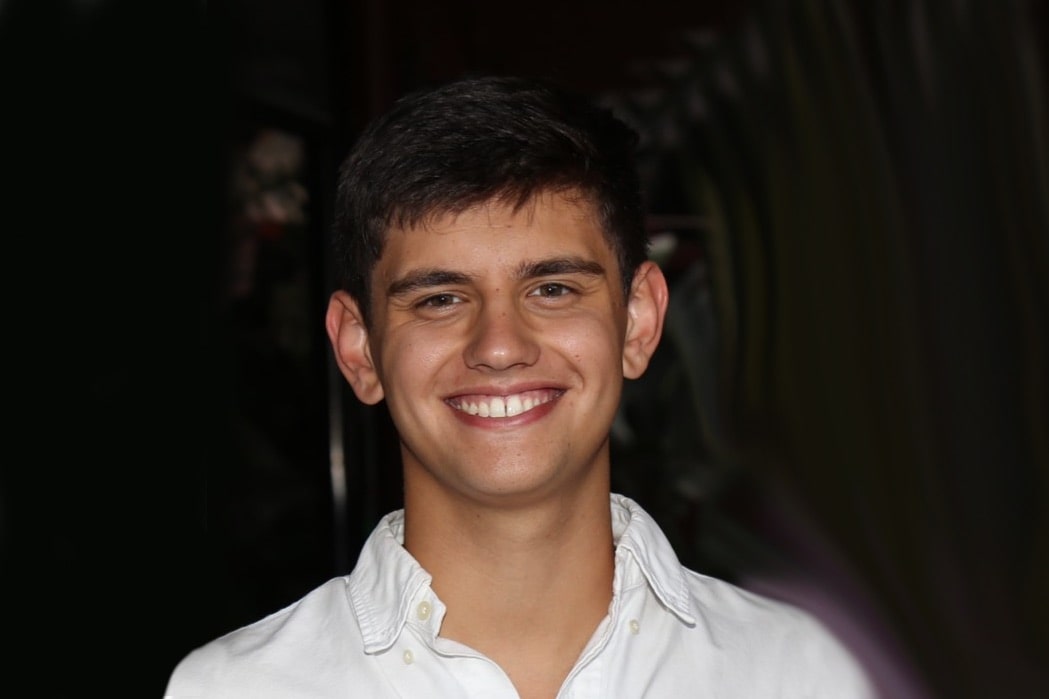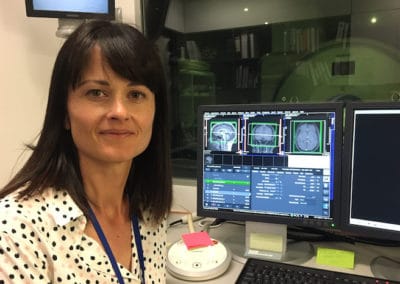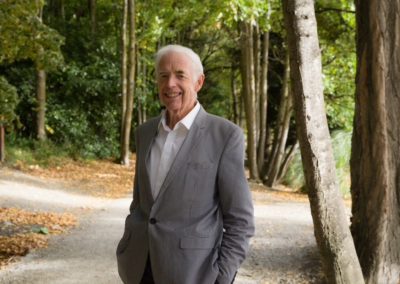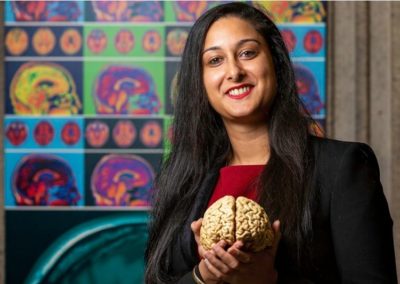“As a young Māori health professional in training, it is crucial to me that I do everything I can, whenever I can, to ensure I am providing for my communities all across Aotearoa.” As a fourth-year medical student at the University of Auckland, Isaac Samuels (Tainui) knows that by doing research he can make a real impact – and he found the perfect opportunity to do just that: a Brain Research New Zealand Māori Summer Scholarship.
As Isaac was moving into his clinical years of medical school, he was keen to work on a project that would allow him to develop experience in clinical research. A summer project with Prof Alan Barber (Ngāti Porou, Whakatōhea) allowed him to combine this goal with his interest in neuroscience and his strong passion for equity and Māori health. Over 10 weeks in 2019/2020, Isaac worked with Prof Barber and a group of stroke researchers at Auckland City Hospital and the Neurology department at Auckland District Health Board, to analyse ethnic differences in access to acute stroke reperfusion therapy.
In New Zealand, we can see clear disparities in regards to stroke incidence and outcomes: Māori and Pacific people are younger at first stroke, have a higher age-adjusted stroke incidence, lower quality of life outcomes, and higher mortality at 12 months than other ethnic groups.
Isaac wanted to find out if these higher mortality rates are caused by ethnic differences in access to acute stroke reperfusion therapy.
He studied all patients in the Northern region who developed an ischemic stroke (caused by a blockage in an artery) and were treated with either intravenous thrombolysis (clot-busting drugs) and/or endovascular thrombectomy (clot retrieval surgery) between 1 January 2018 and 30 September 2019. He measured critical time intervals in the treatment process, as well as outcomes at 24 hours and 90 days.
Isaac’s results were encouraging: He found that there were no ethnic disparities in access to acute ischaemic stroke therapies. He also noted that a higher proportion of Māori received endovascular thrombectomy, and that Māori and Pacific patients were younger and presented with worse neurological impairment at admission. Asian patients had worse outcomes at 90 days compared to other patients, but otherwise, Isaac found no ethnic disparities in outcomes.
“This is good news,” comments Prof Barber. “It doesn’t explain the disproportionate burden falling on Māori from this devastating condition but means that the acute component of care is equitable. We now need to look at other components of care, such as primary and secondary prevention, and rehabilitation, to identify ways to improve outcome.”
For Isaac, finding out that access was equitable was the highlight of his summer scholarship: “Being someone so passionate about equity within the health system for Māori and Pacific, this was extremely exciting to hear! We are constantly made aware of the historical causes of current systemic issues we face in our health system, and seeing these disparities corrected and equity being achieved was incredibly satisfying and encouraging.”
Another highlight of Isaac’s summer scholarship was the opportunity to publish his very first paper, as the research team is in the process of publishing the study in Neuroepidemiology. “I would never have expected that in my fourth year of medical school I would already have the opportunity to publish research in a highly regarded journal,” Isaac says.
Working closely with Prof Alan Barber as a mentor, Isaac not only learned about writing a high-quality research paper, but also what it takes to be a good doctor: “Prof Barber taught me how to engage with patients who are at their sickest, families in distress and the importance of the research and work we do, and the real impact it can have on people and the health system as a whole. I have learned to work hard in all areas of medicine, whether that is teaching, research, clinical practice and everything in between. Prof Barber encouraged me to become a holistic doctor, focusing on all of medicine to become the best physician I can be to better the health of my future patients.”
While Isaac is working at Waikato Hospital for his first year of clinical placement, he is keeping his options open as to where his medical career might take him. But there are two things he knows for sure: “I love research and will continue being as engaged as I can with research and furthering the knowledge of medicine and New Zealand healthcare; and I am fiercely passionate about Māori health and ensuring the people of Aotearoa have equal access to a full, healthy and fulfilled life.”
In 2020-2021, Brain Research New Zealand is once again offering Māori and Pacific Summer Research Scholarships that give students research experience on projects led by a BRNZ member and within BRNZ’s research scope. Find out more and apply here.



